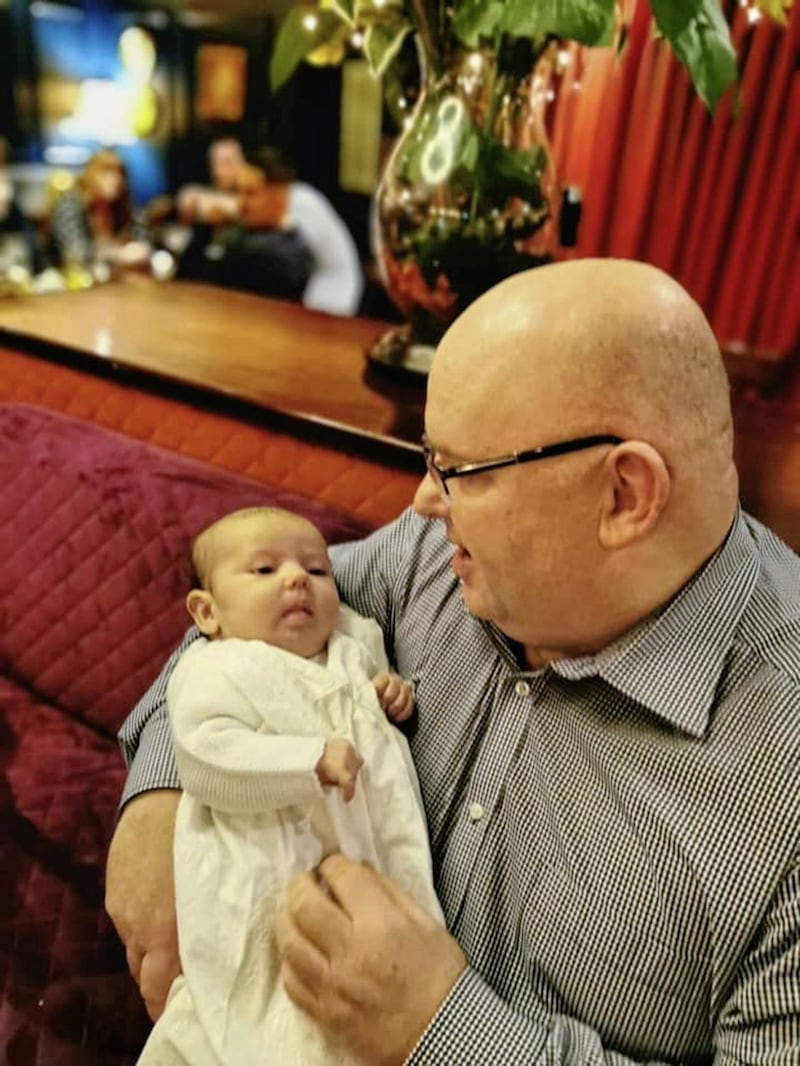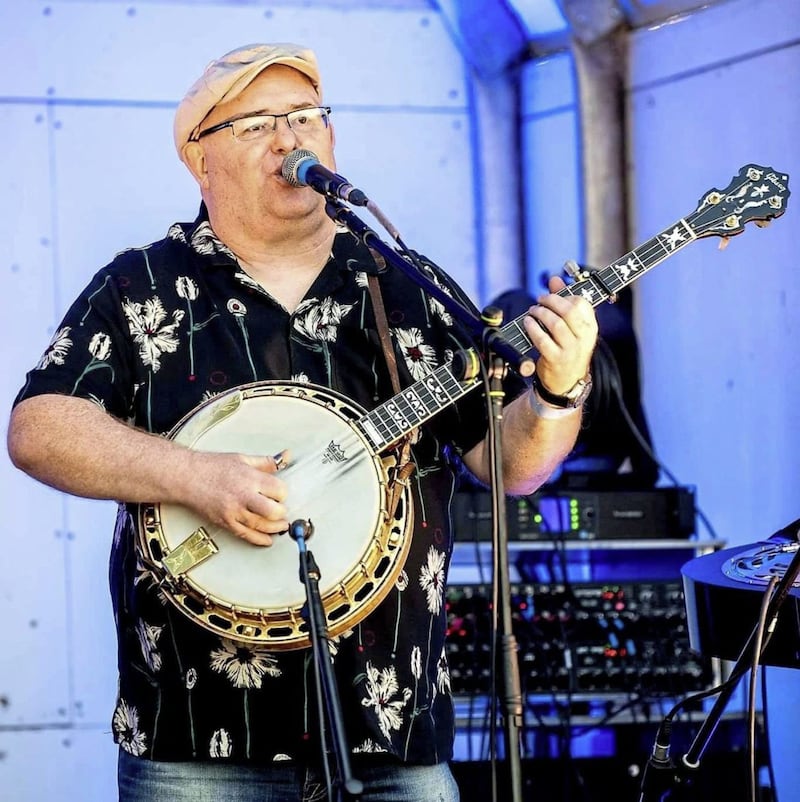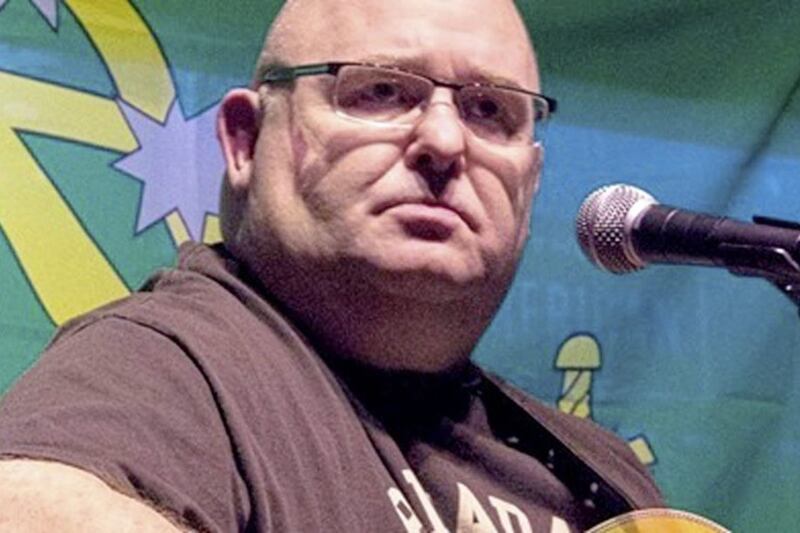MEL Corry lost his battle with Covid-19 at the age of just 56.
Despite having no underlying conditions, and receiving the very best of care from hospital staff, together they were unable to overcome the devastating effects of the virus.
Mel was known to most as a Lurgan man, though he originally hailed from neighbouring Portadown, another starkly divided town that formed part of the ‘murder triangle’ of Counties Armagh and Tyrone.
In 1972, the worst year of the Troubles, the Corry family relocated to Craigavon, a mixed settlement newly established by the Stormont regime.
Growing up, Mel witnessed several friends and family members fall victim to the conflict, some joining the ranks of armed republican organisations.
One important factor in steering him away from the same fate was the influence of his parents, Frances and the late Leo.
Another was his early passion for boxing. A member of Tullygally Boxing Club, he is remembered as a talented young boxer with a record to match, winning several Ulster championships.
Mel’s life almost took a very different turn at this time.
Aged 15, he walked and hitchhiked the 35 miles to Aiken Barracks, Dundalk, with the full intention of enlisting in the Irish Army.
Interviewed by an infamous and eccentric sergeant adorned in combat fatigues and face paint, only his age stood in the way of recruitment.
Instead, he went on to pursue a more conventional employment path, initially in a local supermarket and then in Clendinnings textile factory.
Taking on the position of shop steward for the Transport & General Workers’ Union (T&G, later Unite), he quickly became immersed in trade union politics.
He was instrumental in the re-establishment of Craigavon Trades Council in 1998, serving as its first secretary and later as president (2005-10).
He also sat on the T&G Irish executive and the Northern Ireland committee of the Irish Congress of Trade Unions.
In 1984, while working at Clendinnings, Mel met Fiona McCafferty in a Lurgan pub. They married three years later and had two children, Sean and Michael.
It was clear that Mel adored Fiona and was hugely proud of his sons, not only for their talents and achievements – Sean in football, Mick in sports journalism – but for the men they had become.
Grand-daughter Nancy came along in 2019 and was the apple of his eye.

It was on his honeymoon in Blackpool that Mel bought his first banjo.
Forging a close friendship with fellow musician Sean McKerr, he made the crossover from folk music to rockabilly swing and bluegrass, culminating in the formation of the Tennessee Hennessees.
A 33-year career of tours, festivals and TV appearances followed, with Mel earning a reputation as one of the best banjoists on the Irish and American circuits, in the Earl Scruggs style.

At the same time, he remained adept at picking up the guitar to give a rousing rendition of Tom Paine’s Bones, My Old Man, Viva La Quinta Brigada or The Internationale – to name but a few.
It was thanks to Mel that a generation of activists became acquainted with these and many other songs of protest and struggle.
Music, politics and trade unionism each were a big part of his life, and often combined in this way.
He regularly offered his talents in support of workers’ struggles and other progressive causes, from the anti-apartheid movement to the fight for women’s rights.
The collapse of Mid-Ulster’s textile industry in the mid-1990s led to Mel’s redundancy from Clendinnings, after which he worked as an industrial official for the T&G and in trade union education.
It was also around this time that Mel joined the Communist Party of Ireland.
He sat on its national executive committee and chaired its northern area committee, as well as penning the front page of Unity for a number of years.
A communist till the end, he was regarded as a man of principle, honesty and incorruptible integrity who practised what he preached.
Mel carried these experiences into his work with Counteract, the anti-intimidation unit of the ICTU, before joining its successor organisation, Trademark.
Over the last 13 years he was at the centre of everything positive the organisation did.

He delivered pioneering anti-sectarian training on the shop floor and in communities.
He also established new and fruitful relationships with marginalised republican and loyalist constituencies.
Mel brought an empathetic, class-based perspective to bear on the uphill task of building a transformative peace.
In the wake of the 2007/08 financial crash, he was central to the development of Trademark’s new political education programmes for trade union, community and political activists.
Over the years he delivered these impactful programmes to hundreds of people, in community centres and parish halls, pubs and social clubs.
Unassuming and understated, Mel’s strength as an activist-educator lay in his authenticity and powerful ability to connect with people.
He could calmly deconstruct deeply-held shibboleths and translate complex ideas into common-sense language.
Mel was also a storyteller in the best tradition of the seanchaí.
He could hold court in the pub like few others, regaling people with stories from his working life, music and activism.
He was a big character and great company, not to mention a kind and gentle soul.
Universally loved and admired, Mel’s passing on January 13 has left a huge, irreparable hole in all of our hearts, not least those of his grieving family.



